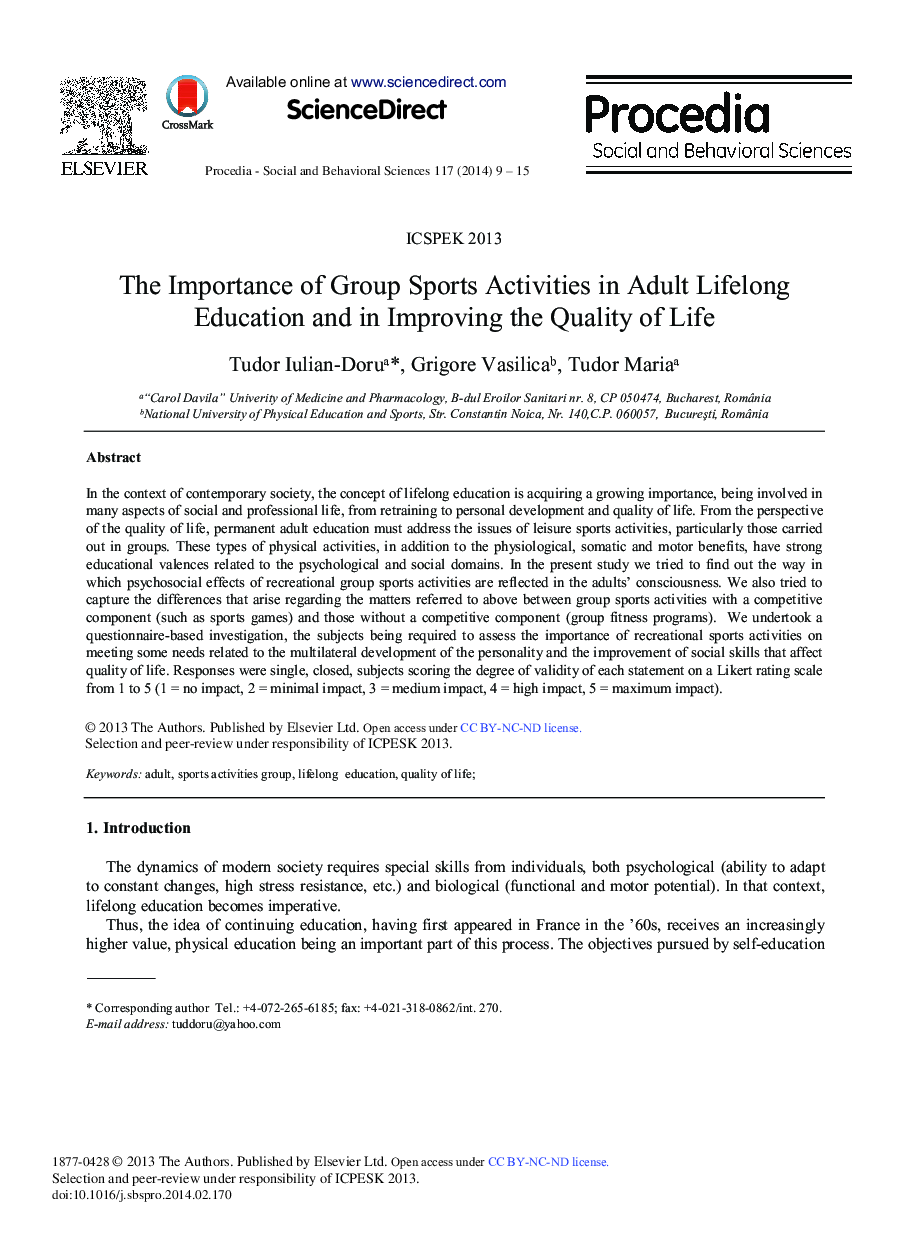| Article ID | Journal | Published Year | Pages | File Type |
|---|---|---|---|---|
| 1114441 | Procedia - Social and Behavioral Sciences | 2014 | 7 Pages |
In the context of contemporary society, the concept of lifelong education is acquiring a growing importance, being involved in many aspects of social and professional life, from retraining to personal development and quality of life. From the perspective of the quality of life, permanent adult education must address the issues of leisure sports activities, particularly those carried out in groups. These types of physical activities, in addition to the physiological, somatic and motor benefits, have strong educational valences related to the psychological and social domains. In the present study we tried to find out the way in which psychosocial effects of recreational group sports activities are reflected in the adults’ consciousness. We also tried to capture the differences that arise regarding the matters referred to above between group sports activities with a competitive component (such as sports games) and those without a competitive component (group fitness programs). We undertook a questionnaire-based investigation, the subjects being required to assess the importance of recreational sports activities on meeting some needs related to the multilateral development of the personality and the improvement of social skills that affect quality of life. Responses were single, closed, subjects scoring the degree of validity of each statement on a Likert rating scale from 1 to 5 (1 = no impact, 2 = minimal impact, 3 = medium impact, 4 = high impact, 5 = maximum impact).
